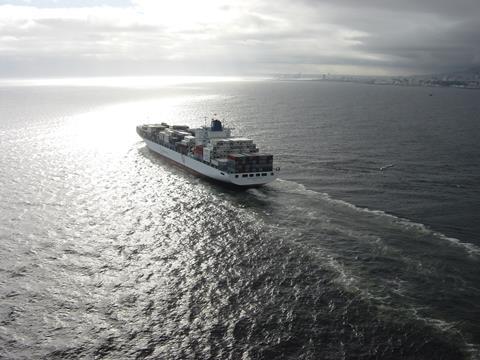South African growers frustrated at record shipping profits while freight rates rise

News that some of the world’s leading shipping lines have posted record profits during the first quarter of 2022 has not been well received in South African fruits circles.
Justin Chadwick, chief executive of the South African Citrus Growers’ Association (CGA) has been one of the most outspoken critics, highlighting say that shipping lines, and other parts of the logistics chain, are making excessive profits at a time when returns to growers are plummeting.
Last week, AP Moller-Maersk announced record results for the first quarter of 2022 with revenue for the quarter up 55 per cent year-on-year to US$19.3bn.
Chadwick told citrus growers at a talk at Fruit Logistica in Berlin in April that the seemingly uncontrolled rise in freight rates posed a significant threat to exporters.
“There were a lot of complaints about the arrogance shown by shipping line management, which is a take it or leave it approach, and charging what they can because they can, and not because they should,” said Chadwick.
“This week a large shipping line released their amazing results – with great fanfare they boasted about their abnormal profits and how they have the ‘ability to help customers overcome logistic challenges’. The biggest logistics challenge is freight rates which is of their making!
“Most fruit exporters will not survive at present freight rates – but those who are in for the long haul find ways to survive – and those ways will probably exclude those who are the cause of the problem.”
New CGA chairperson Hannes de Waal also recently singled out steep rises in freight rates as the biggest single threat to the future of the South African citrus industry.
Chadwick said the shortage in containers – with congestion at many ports around the world, most noticeably in the US and China – was the driving factor behind the high rates.
“Containers are standing still for longer than they are travelling – some say only a third of containers are in rotation – others say 50 per cent,” said Chadwick.
“Whatever the correct figure – when the congestion eases more containers will be in circulation and supply constraints will be eased. In addition, reports indicate many new ships and containers are being built. I would imagine most top management at the shipping lines are paid bonuses based on profit – the higher the profit the better the bonus.”
Chadwick was concerned with the long-term sustainability of the supply chain and cautioned against chasing short-term profits.
“What happens when the congestion eases, and the new ships and containers come into the market?” said Chadwick.
“Freight rates could tumble, and the profits could become losses. Meanwhile, shipping line management have banked their bonuses and can move off to greener pastures.
“Shipping line owners or representatives of shareholders need to take cognisance of this unfolding story – and think carefully about incentivising management to chase short term profits at the cost of long-term sustainability.”
Chadwick also noted the issue of rising costs did not squarely lay at the feet of shipping lines with operators across the supply chain taking advantage.
“Throughout the chain those who invest in the assets do not necessarily manage the assets or set the prices and terms of engagement. In many cases, management of cold stores, transport, distribution warehouses and others in the supply chain are taking advantage of the logistics mayhem and hiking their rates – because they can,” said Chadwick.
“Here again, owners and shareholders of these assets need to watch carefully what management is doing. The one group that both own and manage their assets are the citrus growers – and they are in for the long haul.”
Chadwick’s views are shared by leading growers and exporters in the industry. One leading grower- exporter said that the present steep rise in freight rates and unprecedented profits should become the subject of world trade investigations against unfair practices.



